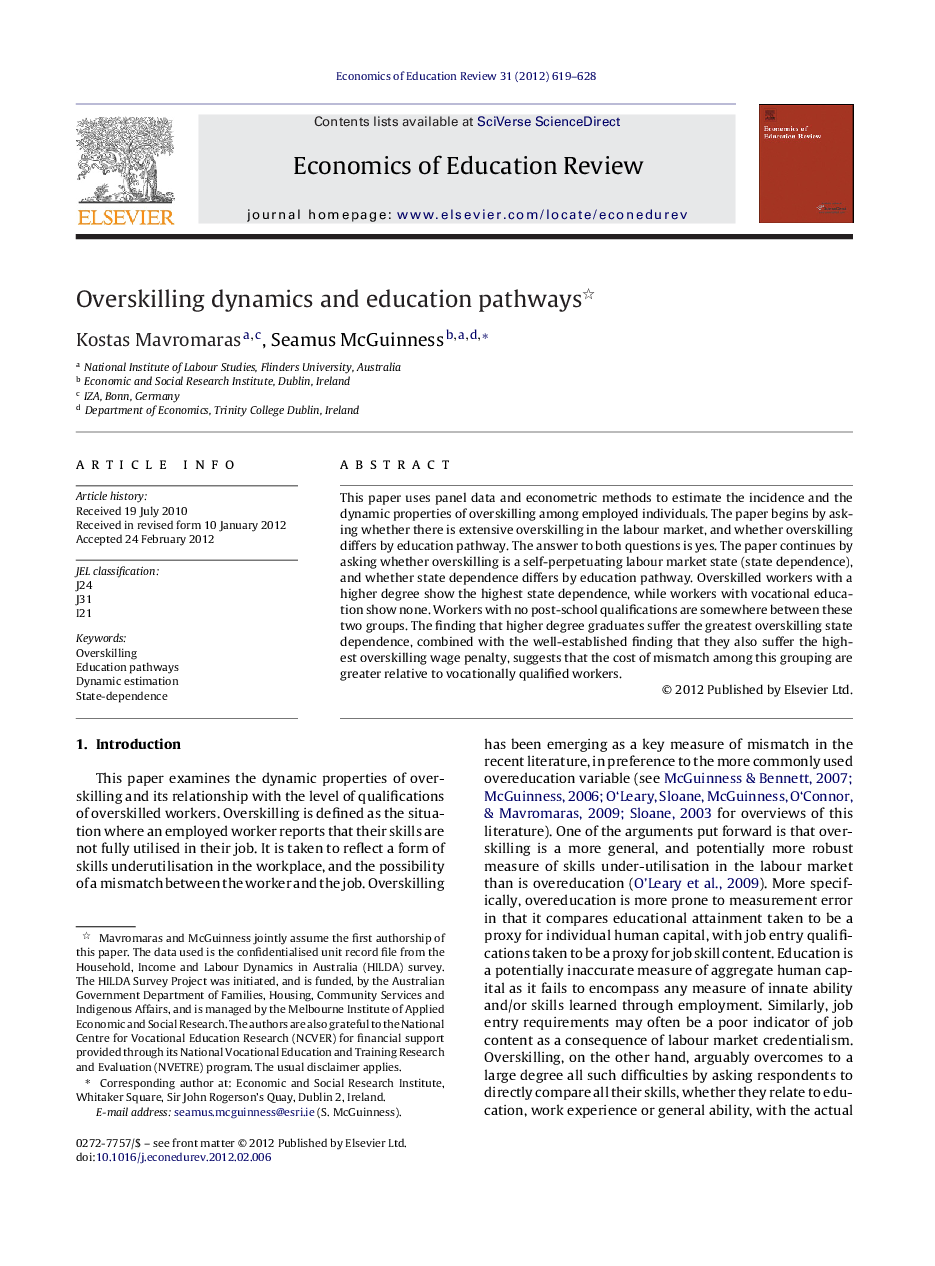| Article ID | Journal | Published Year | Pages | File Type |
|---|---|---|---|---|
| 354432 | Economics of Education Review | 2012 | 10 Pages |
This paper uses panel data and econometric methods to estimate the incidence and the dynamic properties of overskilling among employed individuals. The paper begins by asking whether there is extensive overskilling in the labour market, and whether overskilling differs by education pathway. The answer to both questions is yes. The paper continues by asking whether overskilling is a self-perpetuating labour market state (state dependence), and whether state dependence differs by education pathway. Overskilled workers with a higher degree show the highest state dependence, while workers with vocational education show none. Workers with no post-school qualifications are somewhere between these two groups. The finding that higher degree graduates suffer the greatest overskilling state dependence, combined with the well-established finding that they also suffer the highest overskilling wage penalty, suggests that the cost of mismatch among this grouping are greater relative to vocationally qualified workers.
► We use a panel dataset from Australia to assess the persistence of skill mismatch over time. ► We also attempt to distinguish the extent to which levels of persistence vary between individuals holding academic and vocational qualifications. ► In order to do this we estimate dynamic panel models that fully account for the initial conditions problem. ► We find evidence to suggest that overskilling is persistent over time. ► State dependence is more pronounced among individuals holding academic qualifications and less so among vocationally qualified workers.
